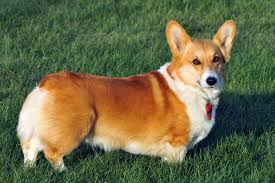If you're on the hunt for a small dog with a big personality, the Pembroke Welsh Corgi checks all the boxes. Known for their fox-like faces, short legs, and boundless enthusiasm, these pups are not just adorable—they’re incredibly intelligent and loyal. But are Pembroke Welsh Corgis good pets for you? Let’s find out!
Pembroke Welsh Corgi Characteristics
These herding dogs hail from Wales and were originally bred to drive cattle. Their intelligence, agility, and alert nature make them quick learners and loyal watchdogs. Pembroke Corgis typically weigh between 25–30 pounds and stand about 10–12 inches tall at the shoulder.
- Compact, sturdy build
- Short, weather-resistant coat
- Affectionate and alert demeanor
- Typically born with a docked tail (unlike Cardigan Corgis)
Pembroke Corgi vs Cardigan Corgi
While they’re often lumped together, Pembrokes and Cardigans are distinct breeds. Cardigans have a long tail, more rounded ears, and a slightly larger frame. Pembrokes are more outgoing and bolder, whereas Cardigans tend to be a bit reserved.
Corgi Herding Instinct: Why They Chase Everything
Pembrokes have a strong herding instinct. It’s not unusual for them to nip at heels, especially with children or other pets. It’s not aggression—it’s their ancestry showing! Regular play and structured activities like agility or herding trials help redirect this energy.
Welsh Corgi Exercise Needs
Don’t let those stubby legs fool you—Corgis need plenty of daily movement. They thrive on long walks, fetch, or mentally stimulating games. Aim for:
- 2 brisk walks (20–30 mins each)
- Interactive toys or puzzle feeders
- Off-leash play in a secure yard
Corgi Puppy Training Tips
Corgis are whip-smart but can be headstrong. Start training early using positive reinforcement:
- Teach basic commands (sit, stay, come) by 10 weeks
- Use treats and praise, not punishment
- Keep sessions short and engaging
- Introduce crate training early—it helps with housebreaking and safety
Bonus tip: Corgis love routines. Keep training times consistent for better results!
Corgi Socialization With Other Dogs
Early socialization is essential. While many Pembrokes are friendly, their bossy nature can lead to tension with other dominant dogs. Puppy classes, dog parks (under supervision), and structured playdates are all great ways to build confidence and manners.
Corgi Diet and Nutrition
Corgis are prone to obesity, so careful feeding is a must. Here’s a quick guide:
- Food type: High-quality kibble or fresh food with protein as the first ingredient
- Portion control: ¾–1½ cups daily (split into two meals)
- Treats: Shouldn’t exceed 10% of daily intake
Supplements like glucosamine can support joint health—especially important for this long-backed breed.
Corgi Back Problems Prevention
One of the main health concerns in Pembrokes is intervertebral disc disease (IVDD). Their long spines and short legs put them at risk, especially when jumping or climbing stairs.
Prevention Tips:
- Use ramps instead of stairs
- Discourage jumping on/off furniture
- Keep your Corgi at a healthy weight
- Provide joint-supportive bedding
Grooming Tips for Welsh Corgi
Though they’re double-coated, Pembrokes aren’t too high-maintenance. Expect seasonal shedding—especially spring and fall.
- Brush 2–3 times weekly with a slicker brush
- Bathe every 4–6 weeks
- Trim nails every 2–3 weeks
- Clean ears regularly and brush teeth 2–3 times a week
Final Woof: Are Pembroke Welsh Corgis Good Pets?
In a word—absolutely. They’re affectionate, loyal, and endlessly entertaining. Just be ready for a bit of sass and a lot of shedding. With the right training and care, your Pembroke Welsh Corgi will be a cherished companion for years to come.
"My Corgi, Nala, used to herd my toddler away from the fireplace! It was equal parts funny and protective—classic herding instinct at work."
Whether you're adopting a Corgi puppy or considering adding one to your pack, you’re in for a life full of love, laughter, and low-to-the-ground cuddles.
Frequently Asked Questions (FAQs)
1. What’s the difference between Pembroke and Cardigan Corgis?
2. Do Pembroke Welsh Corgis shed a lot?
3. How much exercise do Corgis need daily?
4. Are Corgis good with kids and other pets?
5. How can I prevent back problems in my Corgi?
6. What’s the best diet for a Pembroke Welsh Corgi?

About SniffnTail
SniffnTail is your go-to destination for everything pets. From helpful advice, tips, and insights to thoughtfully selected products and resources, we’re here to support pet owners at every stage of their journey. Whether you're caring for a playful pup, a wise old cat, or anything in between, SniffnTail offers tools and knowledge to make pet parenting easier and more joyful.
Related Articles
 Dog Breeds • 6 min read
Dog Breeds • 6 min readBoxer Dog Breed Guide: Playful Guardians with Big Hearts
Explore the ultimate Boxer dog breed guide: history, personality traits, physical features, AKC standards, and tips for caring for these bouncy, lovable guardians.
 Dog Breeds • 6 mins Read
Dog Breeds • 6 mins ReadComplete Guide on German Shepherds
Explore this complete German Shepherd guide covering training, exercise, shedding, living in apartments, lifespan, and FAQs.
 Dog Breeds • 8 mins
Dog Breeds • 8 minsSwedish Vallhund Dog Breed: The Viking Companion You’ll Love
Discover Swedish Vallhund breed facts, their herding instincts, care needs, temperament, and tips for raising this loyal, energetic Viking dog.

